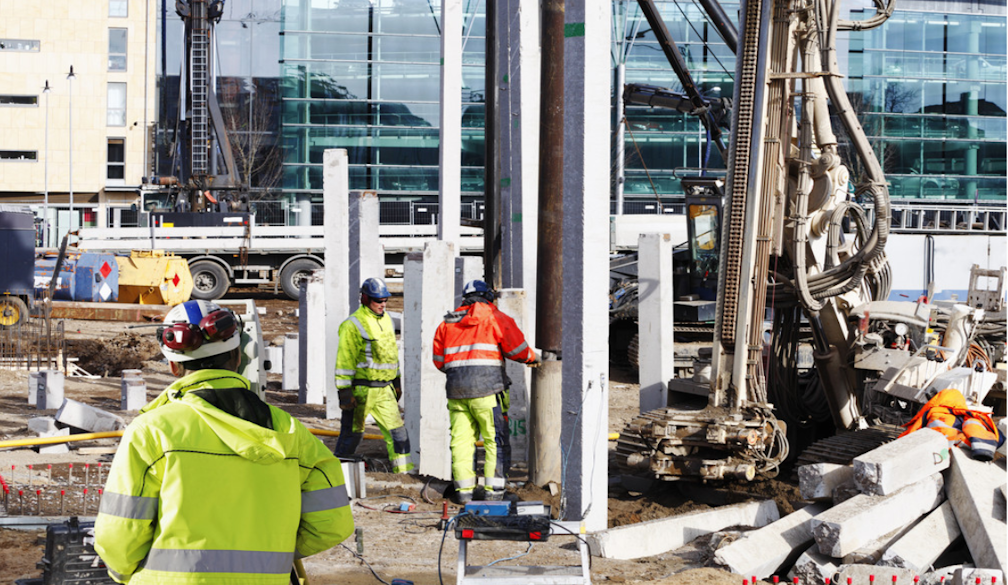3 Strategies for Efficient Construction Management

Managing a construction project is no small task. Between coordinating teams, sourcing materials and keeping to strict deadlines, the role requires clear organisation and smart decision-making. Inefficiencies can lead to cost blowouts and delays, which makes it essential for project managers to adopt strategies that streamline operations. By focusing on planning, resource use and waste management, construction projects can run smoothly and deliver stronger results for clients.
Efficiency in construction management doesn’t just benefit the bottom line. It also improves safety standards, reduces downtime and helps projects finish on schedule. A well-managed site fosters teamwork and creates an environment where trades and suppliers can work effectively. When the right strategies are put in place from the outset, challenges become easier to navigate and goals more achievable.
The following strategies highlight practical ways construction managers can enhance efficiency while maintaining high-quality outcomes. Each approach considers the everyday challenges faced on-site and offers guidance that can be applied across projects of different sizes and scopes.
Prioritise Quality Materials and Resources
One of the most effective ways to ensure long-term project success is by choosing reliable and durable materials. Using commercial insulation, for example, improves energy performance and reduces the need for costly adjustments later. By investing in the right products from the start, managers can save time that might otherwise be spent on repairs or replacements. Quality resources also make construction work safer and more predictable, supporting both efficiency and sustainability.
Beyond materials, it’s also about managing suppliers and deliveries. Delays in receiving key items can hold up entire sections of a build. Establishing strong relationships with trusted suppliers ensures materials arrive on time and meet specifications. This not only supports workflow but also builds confidence across teams who rely on having the right resources in place when they need them.
Efficient material management requires more than just timely delivery. Proper storage and handling also play a role in protecting resources from damage or theft. By implementing systems that safeguard materials and maintain order, managers reduce waste and keep projects moving steadily forward.
Streamline Waste and Site Management
Construction sites generate a large amount of waste, and if it’s not managed properly, it can quickly become a burden. Organising skip bins on site provides a straightforward way to manage debris, maintain cleanliness and improve safety. With a system for separating waste, recyclable materials can be diverted, reducing environmental impact while keeping disposal costs under control. This makes waste management both an economic and practical consideration.
Clean and organised sites also boost productivity. Workers can focus on their tasks without worrying about navigating hazards or clutter. Clear pathways and dedicated disposal areas reduce downtime and support a culture of responsibility. When waste management is integrated into the overall plan, it becomes a seamless part of daily operations.
Another benefit of structured waste processes is compliance. Local regulations often require specific disposal methods, and failing to meet these standards can result in penalties or delays. By planning ahead and ensuring waste systems are in place, managers protect both their projects and their reputations.
Improve Scheduling and Communication
Strong scheduling practices are essential to construction management. From day one, a clear timeline sets expectations and helps identify potential conflicts. Having accurate information about lead times for steel supplies is a crucial part of this process. Steel is a key material in many projects, and delays in its delivery can impact framing, structural work and subsequent trades. Planning around these factors ensures that schedules remain realistic and achievable.
Equally important is maintaining open communication between all stakeholders. Miscommunication can cause confusion, rework and frustration, slowing down the overall pace. Regular updates and progress meetings create opportunities to identify issues early and keep everyone aligned. Transparent communication also builds trust, which strengthens relationships across the site.
Technology plays a valuable role here as well. Project management software allows teams to share updates, track milestones and coordinate in real time. These tools reduce paperwork and provide visibility, ensuring that everyone involved can access the information they need when they need it. The result is a smoother workflow and fewer disruptions.
Efficiency in construction management comes down to planning ahead, making smart choices and keeping everyone on the same page. By investing in quality materials, implementing effective waste systems and prioritising strong scheduling, managers can create projects that stay on track and within budget. These strategies not only improve outcomes for clients but also foster safer, more productive worksites.
With the right systems in place, challenges can be handled with confidence and delays minimised. Construction projects are complex, but efficiency brings clarity and control. For managers aiming to deliver high-quality results while staying competitive, adopting these strategies is a step towards building lasting success.









